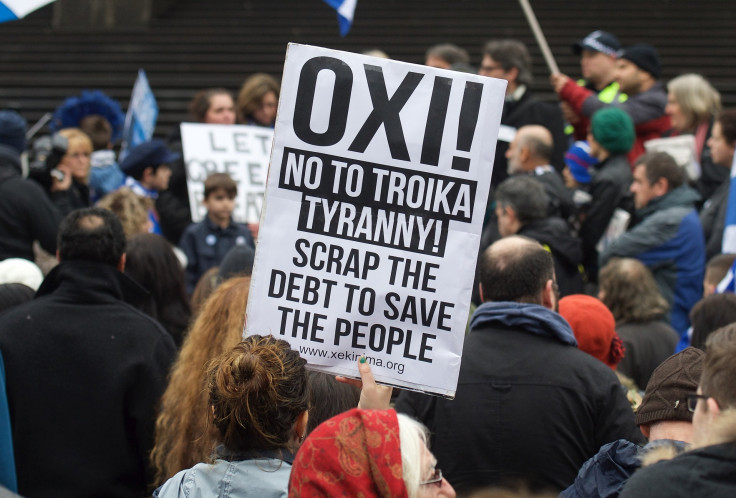Greece Debt Crisis: Referendum Vote Live Stream, Where To Watch And Check For Updates On Greek Debt Vote

Millions of Greeks Sunday will decide the monetary future of their country. They’re voting on whether the government should accept a bailout package from foreign lenders that would impose steep budget cuts and strict austerity measures. The vote has major implications, and emotions ran high this week as protesters took to the streets to bemoan financial controls that were imposed recently to avoid a national run on banks. Greece became the first country to default on payment of loans to the International Monetary Fund this week, too.
You can watch a livestream from channels on either of these two websites (sorry, they’re in Greek), here and here. For relevant Twitter accounts, YouTube channels and websites, see below.
In case you’re unfamiliar with what the votes mean, here’s a good run down of the implications -- either way.
Should the country vote "yes" on the referendum, then the foreign bailout would be accepted from the country’s three major creditors. In that case, the Greeks would have said they want to keep using the Euro and it would be a major blow for Prime Minister Alexis Tsipras, who opposes the measure.
If the vote is "no," then the country would not accept the bailout. Greece needs money, though, and there are two main trains of thought on what could happen from there. One, which Tsipras has expressed, is that saying ‘no’ will force the creditors to negotiate better terms for a different bailout package, one that doesn’t include austerity measures. The other possibility is that the creditors will make good on threats not to renegotiate. Should that second possibility materialize, Greece will risk its status as a eurozone country (Tsipras, for his part, has said he thinks the eurozone threat is a bluff).
To check up on Tsipras, see his website, YouTube channel and Twitter account. Here’s another official website to check. Finally, here’s a Greek newspaper that publishes in English.
Oh, and by the way, if you’ve seen “OXI” on photos from the Greek financial crisis, that means “no” in Greek.
© Copyright IBTimes 2025. All rights reserved.






















